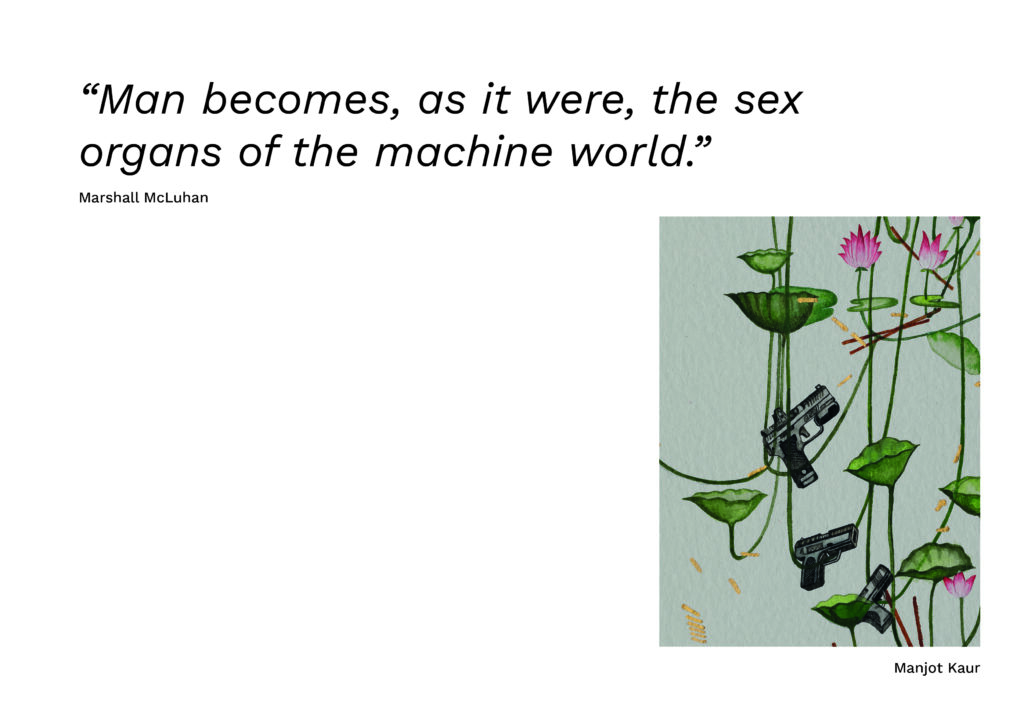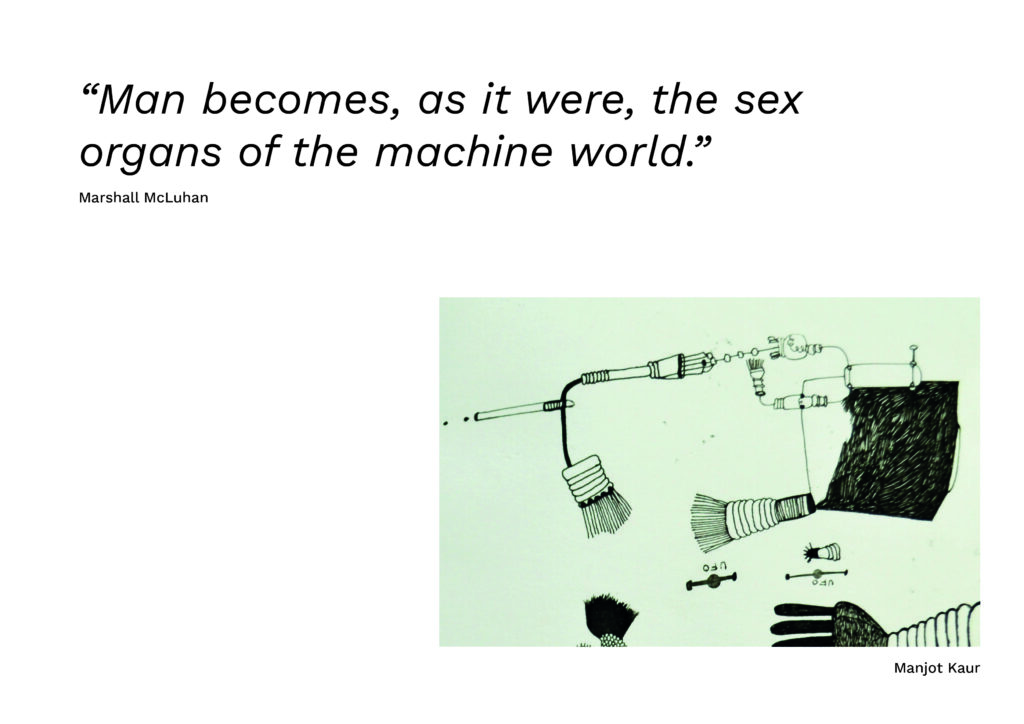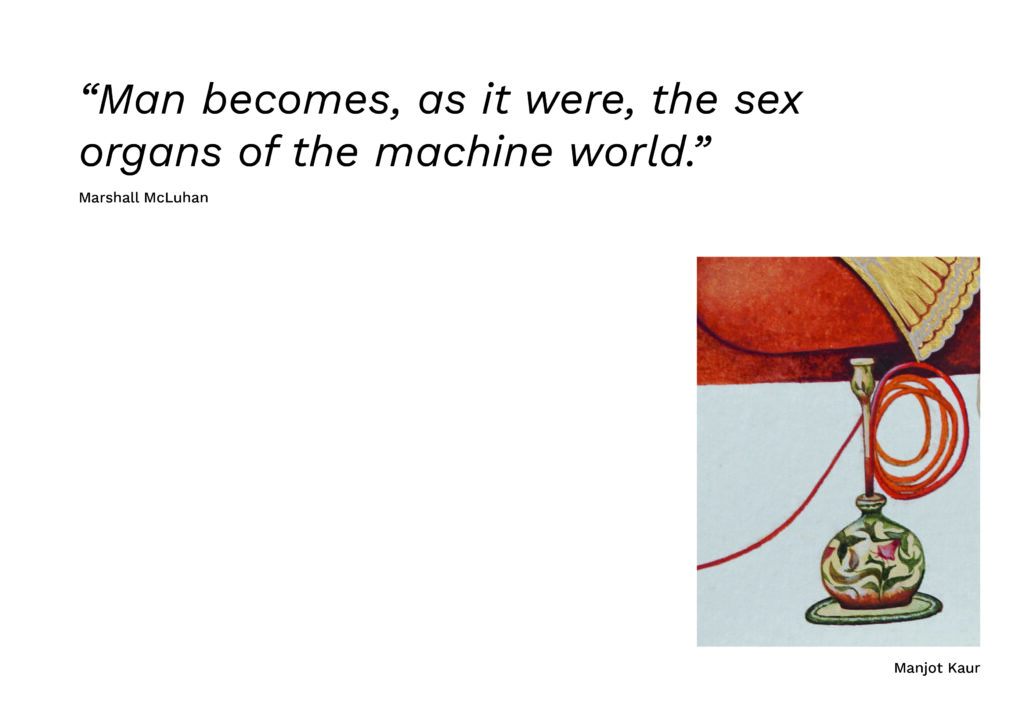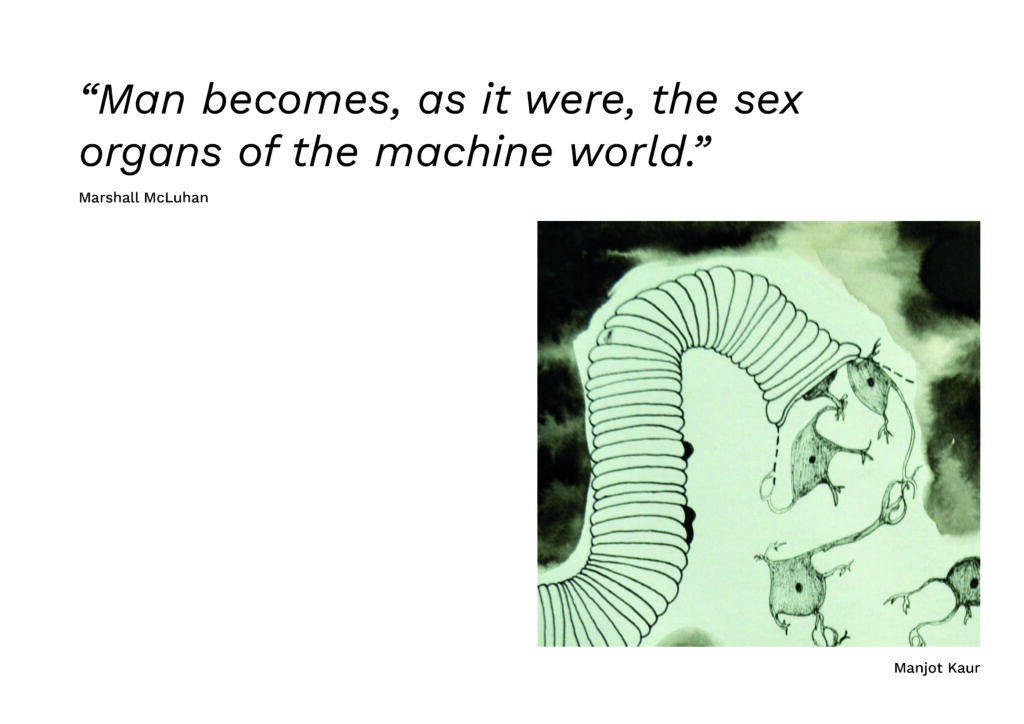



I have been thinking about this quote recently:
“Man becomes, as it were, the sex organs of the machine world.” This quote originates from Understanding Media, 1964 by Marshall McLuhan. It is remarkable not only because of how prescient it was of our modern days but especially because it has been referenced so much. This idea has been a fundament of techno-utopist cultures as well as transhumanist cultures. But for today, I would like to give it an alternative reading; not celebrating this great birthing of our technological children but rather looking more closely at how this process actually takes place.
The full sentence from which the quote is derived is: “Man becomes, as it were, the sex organs of the machine world, as the bee of the plant world, enabling it to fecundate and evolve ever new forms” First of all, the words.
“Man” is a frustrating way of mentioning humanity as a whole, it is particularly ironic that still the male aspect of humanity is predominant when talking about reproduction. This quote is obviously from a different time (1960’s) but beyond the specific phrasing, the underlying concepts focus on a narrow and gendered view of reproduction. “The sex organs” follows in a similar direction with the reference to bees, the accent is on the moment of fecondation, the initiation of creating and then disappearing. Not on nurturing or caring.
While Marshall McLuhan only seems to focus on the very short moment of fecondation, one could wonder, if technology, things, engineered microbes or architecture are children of humanity, who is bearing them and birthing them? Who is pregnant with them, feeds them and takes care of them? Who mothers the synthetic world?
One could wonder, in this process of creating more stuff, why does humanity keep destroying its environment and its own people. Under neo-capitalism, an obvious answer is greed or profit. Another theory is that like the host of a parasite (a brutal way to call a pregnancy of sort) humanity is compelled to keep on producing and birthing an array of synthetic stuff. A species is about to be born and like evolution, humanity is randomly delivering more creatures until one of those will take the upper hand and surpass its parents. We are numb vessels waiting for the advent of a greater being. Something I really like about this idea is how it decentralizes humanity from being the protagonist of the story and makes it instead a bystander. I think a lot of Sci-fi needs this perspective. Something I don’t like about this way of looking at it is how it deculpabilises our modern system saying “we can’t help it, it’s what we are bound to do anyway” It justifies the exploitation of the world and of people to produce crap for an ideal, the birth of a superior technological species, which might very well never happen.
So once again, one could wonder, if technology, things, engineered microbes or architecture are children of humanity, who is bearing them and birthing them? Who is pregnant with the synthetic world? While the minority of investors, engineers, designers or architects fecondate the machine world, it is a majority of workers and machines that bear their children. And that is forced to keep producing more offspring. The workforce is a mother that is not allowed to abort and must always keep on birthing more tech, more objects while never being given the time and means to take care of its progeny. The people who make do not have the luxury of time and resources to care for their creation whether it is repairing or recycling. And most of the time the children are taken away as soon as they arrive. The workers are the tired surrogate mothers. Labor takes a double meaning.
One could wonder, how long will humanity stay fertile for machines? As ressources reduce, as the environment deteriorates and as the mothers suffer and eventually die out, even with all sacrificed, the dubious avent of another synthetic species is not assured in our given limitations.
So to this day the humanity-parent continues to force mothers to birth infinitely more synthetic creatures under the pressure of a modern, patriarchal and capitalist system without knowing for sure if the evolution will happen or when it will happen. In the meantime, it is the earth and the ocean that receive our discarded children. The plastic bags, the broken electronics, the construction materials. It is the earth and the oceans that take them in.